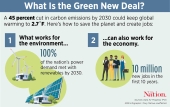
 1
1




New Frontier Permaculture
http://www.facebook.com/NewFrontierPermaculture
 1
1




 1
1








 1
1




"You must be the change you want to see in the world." "First they ignore you, then they laugh at you, then they fight you, then you win." --Mahatma Gandhi
"Preach the Gospel always, and if necessary, use words." --Francis of Assisi.
"Family farms work when the whole family works the farm." -- Adam Klaus




New Frontier Permaculture
http://www.facebook.com/NewFrontierPermaculture




Get involved -Take away the standing of corporations MovetoAmmend.org




Get involved -Take away the standing of corporations MovetoAmmend.org




Permaculture...picking the lock back to Eden since 1978.
Pics of my Forest Garden

|
Stop it! You're embarassing me! And you are embarrassing this tiny ad!
Thread Boost feature
https://permies.com/wiki/61482/Thread-Boost-feature
|



